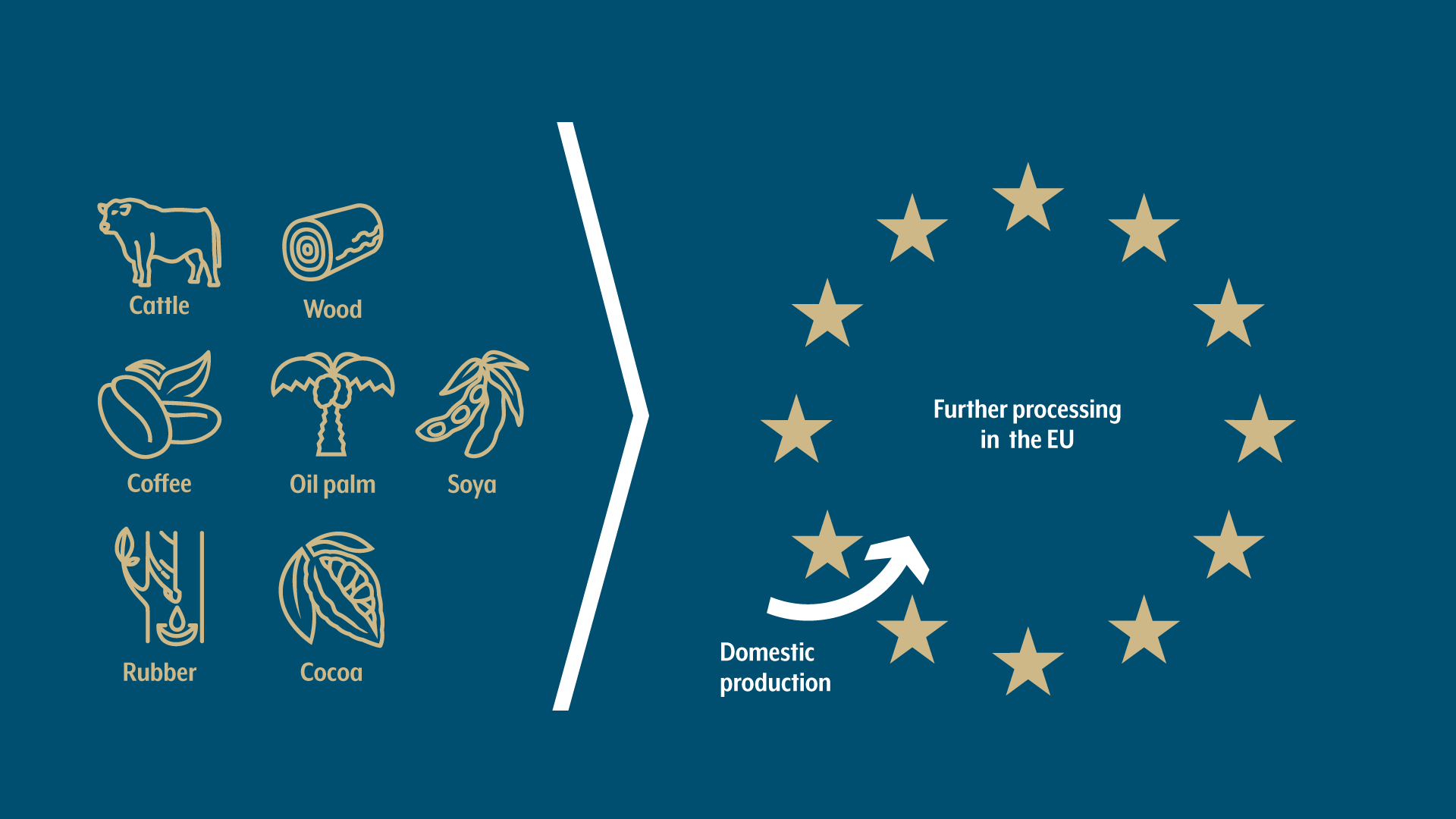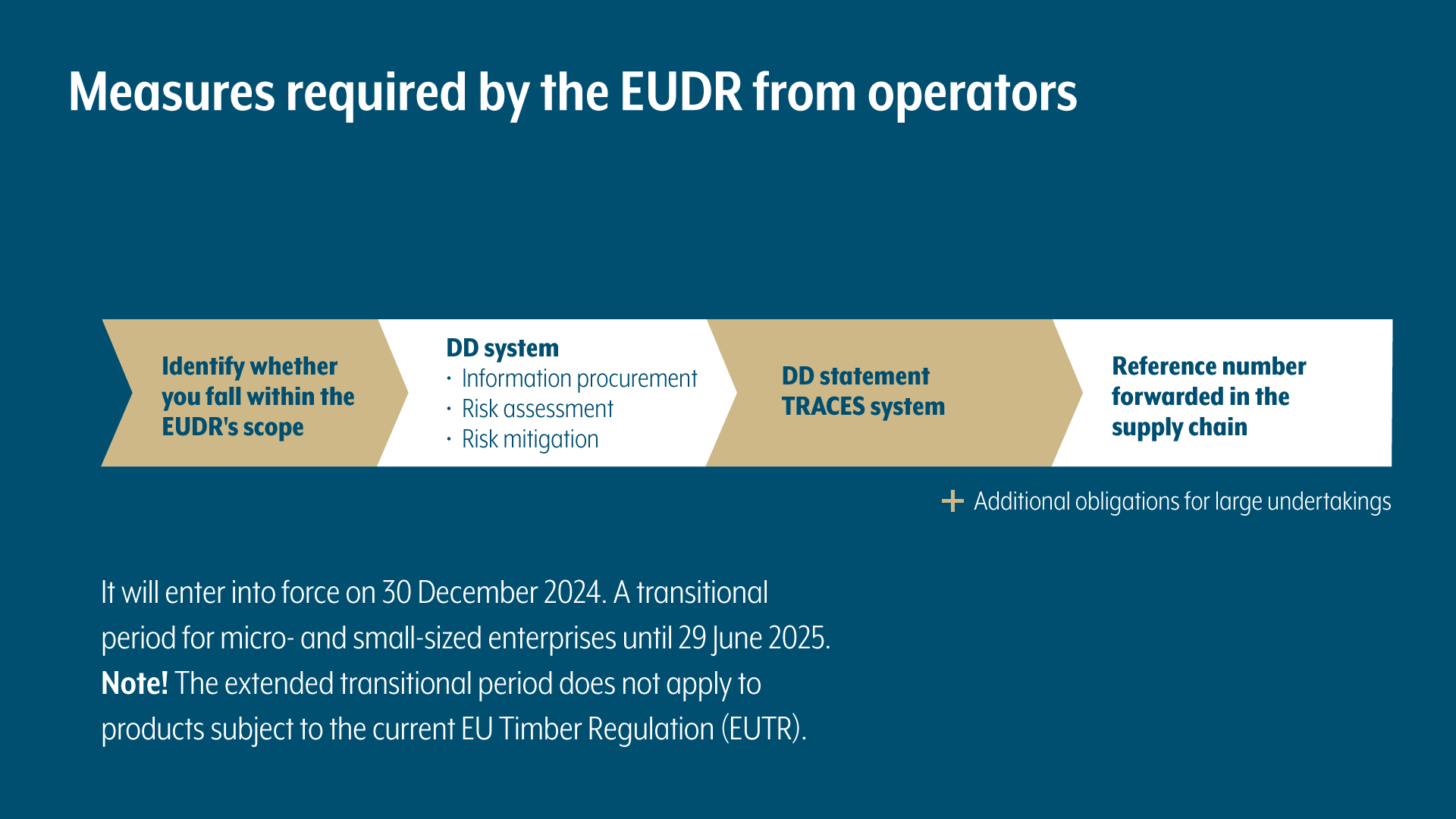
In domestic production and further processing, the EUDR also applies to the commodities and the products made from them listed in Annex 1. Your role can either be an operator or trader. The EUDR sets certain obligations for the aforementioned operators and traders. The obligations depend, for example, on the company’s size and its role in the supply chain.
Operator
In the EUDR, ‘operator’ means any natural or legal person who, in the course of a commercial activity, places relevant products on the market or exports them.
According to the guidelines of the Ministry of Agriculture and Forestry, Finland has operators in the following (as of 3/2024):
Cattle industry
- As a rule, cattle slaughterhouses are operators.
- If a farm is engaged in direct sales, it is an operator.
Forest sector
- As a rule, wood buyers (standing sales) are operators.
- Forest owners and wood sellers in harvesting for forest owners’ private use and in delivery sales are operators.
Further processing
- If you purchase commodities from a company defined as an operator in the EUDR and process them into new products that are listed in Annex 1, you will be regarded as an operator or a small- or medium-sized operator, regardless of your company’s size.
Measures required from operators

- Identify whether your product is listed in Annex 1 to determine whether your product falls within the scope of the EUDR’s obligations.
- All operators must have an appropriate due diligence system, i.e. a DD-system, to ensure that products placed on the market are in compliance with the EUDR.
- Acquire the product information required using the DD-system.
- Carry out risk assessment and risk mitigation measures for your products using the DD-system.
- Complete a DD-statement in the EUDR Information System before placing your products on the market.
- Forward the DD-statement’s reference number assigned to the batch in question to the product buyer if it is a corporate customer.
- Large undertakings are obligated to issue public reports on their DD-system on an annual basis.
Measures for microenterprises or small- and medium-sized operators engaged in further processing
- Small- and medium-sized operators do not need to prepare a DD-statement.
- Make sure that you obtain the DD-statement’s reference number for the commodities or products listed in Annex 1 from the party preceding you in the supply chain.
- Forward the DD statement’s reference number assigned to the batch in question to the product buyer if it is a corporate customer.
Example
Further processing company A (small- or medium-sized enterprise) purchases commodities in the EU and processes them into new EUDR products. As the commodities have already been placed on the market, A receives DD reference numbers in conjunction with the purchase. A is a small- or medium-sized operator. In this case, the small- or medium-sized operator has the same obligations as a trader, i.e. obtaining DD reference numbers and forwarding them with the new product (divided at the correct ratio).
Large undertakings have more obligations (see “Large undertakings and the EUDR”).